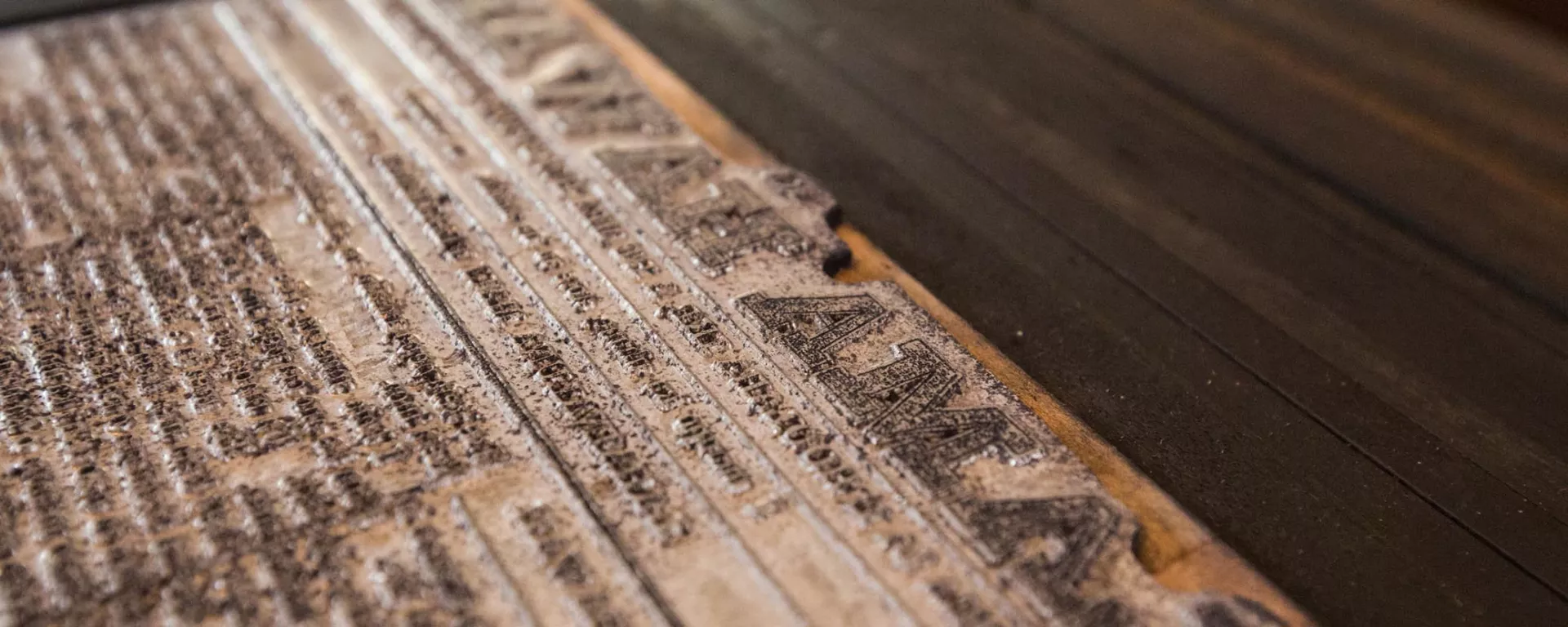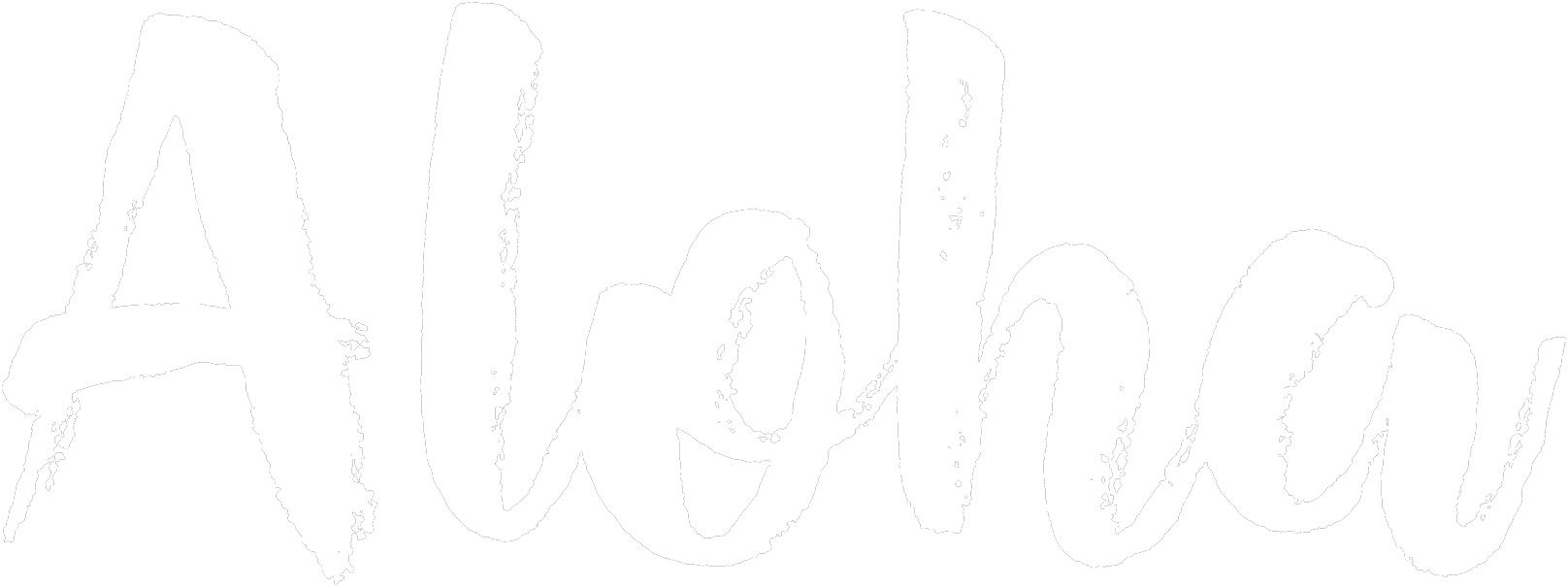
 Hawaiian Language
Hawaiian Language
The Hawaiian Language
The world’s indigenous languages are repositories for identity, cultural history, community traditions, and generational memory. A native people’s language is the key to unlocking unique systems of knowledge and understanding.
The Hawaiian language, 'Ōlelo Hawai‘i, came to our shores along with the first people to arrive from the ancestral homelands of Polynesia. The language evolved alongside the culture into the nuanced, multi-layered 'Ōlelo Hawai‘i we know today.
When the written language was introduced to the masses in the early 1800s, Hawai‘i residents – both Native Hawaiians and others who came to the islands – developed an insatiable appetite for reading and writing in 'Ōlelo Hawai‘i. Newspapers with news of Hawai‘i and the wonders of the world made their way to all corners of the kingdom, and literacy rates rivaled the most progressive nations in the world. The cosmopolitan citizenry of the Hawaiian kingdom conducted their lives in Hawaiian, the language of the land.
Following the overthrow of the Hawaiian kingdom in 1893, Hawaiian language use declined along with other Hawaiian cultural practices, lifestyles, and arts. Aiding in the decline was a law banning instruction in the language in Hawai‘i schools.
The Hawaiian cultural renaissance of the 1970s set the stage for the language’s return from the brink of extinction. Sparked by the realization that fewer than 50 children spoke the language in the early 1980s, a group of educators established preschools where children learned Hawaiian by interacting with native speaking elders. These schools proved successful, and today are the foundation of an educational system where students can go as far as a doctoral degree in the language.
Even with Hawaiian language returning to prominence in Hawai‘i – the only state in the US with two official languages – it is still classified as a critically endangered language by the United Nations.
You can be a part of the 'Ōlelo Hawai‘i revival. Start with the basic Hawaiian words and pronunciation tips below. When you arrive, use Hawaiian place names whenever possible. A growing number of businesses are incorporating 'Ōlelo Hawai‘i into their signage. When you arrive at your hotel, ask what Hawaiian language resources are available. And remember to greet the people you meet with a warm, genuine “aloha.”
Note: We recognize the use of linguistic markings of the (modern) Hawaiian language including the ‘okina [‘] or glottal stop and the kahakō [ō] or macron (e.g., in place names of Hawai‘i such as Lāna‘i). We acknowledge that individual businesses listed on this site may not use the ‘okina or kahakō, but we recognize the importance of using these markings to preserve the indigenous language and culture of Hawai‘i and use them in all forms of communications.
The Hawaiian language, 'Ōlelo Hawai‘i, came to our shores along with the first people to arrive from the ancestral homelands of Polynesia. The language evolved alongside the culture into the nuanced, multi-layered 'Ōlelo Hawai‘i we know today.
When the written language was introduced to the masses in the early 1800s, Hawai‘i residents – both Native Hawaiians and others who came to the islands – developed an insatiable appetite for reading and writing in 'Ōlelo Hawai‘i. Newspapers with news of Hawai‘i and the wonders of the world made their way to all corners of the kingdom, and literacy rates rivaled the most progressive nations in the world. The cosmopolitan citizenry of the Hawaiian kingdom conducted their lives in Hawaiian, the language of the land.
Following the overthrow of the Hawaiian kingdom in 1893, Hawaiian language use declined along with other Hawaiian cultural practices, lifestyles, and arts. Aiding in the decline was a law banning instruction in the language in Hawai‘i schools.
The Hawaiian cultural renaissance of the 1970s set the stage for the language’s return from the brink of extinction. Sparked by the realization that fewer than 50 children spoke the language in the early 1980s, a group of educators established preschools where children learned Hawaiian by interacting with native speaking elders. These schools proved successful, and today are the foundation of an educational system where students can go as far as a doctoral degree in the language.
Even with Hawaiian language returning to prominence in Hawai‘i – the only state in the US with two official languages – it is still classified as a critically endangered language by the United Nations.
You can be a part of the 'Ōlelo Hawai‘i revival. Start with the basic Hawaiian words and pronunciation tips below. When you arrive, use Hawaiian place names whenever possible. A growing number of businesses are incorporating 'Ōlelo Hawai‘i into their signage. When you arrive at your hotel, ask what Hawaiian language resources are available. And remember to greet the people you meet with a warm, genuine “aloha.”
Use the interactive Hawaiian Pronunciation Guide below to play audio clips and enjoy learning some of the most commonly used words and phrases of the Hawaiian language.
Note: We recognize the use of linguistic markings of the (modern) Hawaiian language including the ‘okina [‘] or glottal stop and the kahakō [ō] or macron (e.g., in place names of Hawai‘i such as Lāna‘i). We acknowledge that individual businesses listed on this site may not use the ‘okina or kahakō, but we recognize the importance of using these markings to preserve the indigenous language and culture of Hawai‘i and use them in all forms of communications.
Hawaiian Word
English Definition
A hui hou!
See you later! (Until we meet again)
Aloha ahiahi!
Good evening!
Aloha awakea!
Good day! (generally 11am - 1pm)
Aloha e _____!
Greetings _____!
Aloha ʻauinalā!
Good afternoon!
Aloha kakahiaka!
Good morning!
Aloha kākou!
Greetings to all!
E ʻai kākou.
Let's eat.
E kala mai.
Excuse me/us. Pardon me/us.
E komo mai!
Welcome!
Hana hou!
Do it again! (Encore!)
He aha ka mea hou?
What's new?
He aha kēia?
What is this?
He mea iki.
A small thing. (not a problem - response to mahalo)
ʻA ʻoia!
That's it!
ʻAʻole maopopo iaʻu.
I don't know.
ʻO ________ koʻu inoa.
My name is________.
ʻO wai kou inoa?
What is your name?
ʻO wau kekahi!
Me too!
ʻOia mau nō.
Same as usual.
ʻOno loa kēia!
This is very delicious!
I lā maikaʻi!
Have a good day!
Mahalo nui loa!
Thank you very much!
Maikaʻi au.
I am good.
Pehea ʻoe?
How are you?
Hawaiian Word
English Definition
Heʻe Nalu
To surf
Hekehi
To hike
Hiamoe
To sleep
Hīmeni
To sing a song
Hoe Waʻa
To paddle a canoe
Hulahula
To dance any kind of dance
ʻAu
To swim
Leʻaleʻa
Fun
Luʻu
To dive
Nanea
To relax, enjoy
Papa Heʻe Nalu
Surfboard
Waʻa
Canoe
Hawaiian Word
English Definition
Hula
The traditional dance of Hawaiʻi
ʻŌlelo
Language; Speech; Word
ʻUkulele
Popular musical instrument brought to Hawaiʻi by the Portugese in 1879
Kahuna
A skilled and respected practitioner; priest
Kapu
Restricted; Forbidden; Sacred; Taboo
Kui Lei
To string a lei
Kuleana
Responsibility; Privilege
Lei
A garland of flowers given as a symbol of affection
Makana
Gift
Mele
Song
Moʻolelo
Story
Oli
Chant
Wahi Pana
Special and significant place
Hawaiian Word
English Definition
Hale
House
ʻŌpala
Trash; Rubbish
Kālā
Money
Kalipa
Flip Flops; Sandals; Slippers
Kāmaʻa
Shoe
Kiʻi
Picture; Image; Photograph; Statue
Kōkua
Help
Lole
Clothes
Mahalo
Thank you; Appreciation; respect
Pau
Finished; Done
Hawaiian Word
English Definition
Halakahiki
Pineapple
ʻAi
To eat
ʻOno
Delicious
ʻUala
Sweet potato
Imu
Underground oven
Kalo
Taro
Kālua
To roast in an underground oven
Kope
Coffee
Lūʻau
Hawaiian feast
Niu
Coconut
Poi
Hawaiian staple food made from cooked taro corns
Poke
A chunk; a way of preparing raw fish in chunks
Hawaiian Word
English Definition
Ahupuaʻa
A mountain-to-sea land divison
Ānuenue
Rainbow
Ao
Cloud
Awāwa
Valley
Hōkū
Star
Honu
Turtle
Honua
Earth
ʻĀina
Land
Iʻa
fish
Kahakai
Beach
Kahawai
River
Kai
Ocean
Kiʻi Pōhaku
Petroglyph
Lā
Sun
Ma kai
Towards the ocean
Ma uka
Towards the mountains
Makani
Wind
Mauna
Mountain
Moʻo
Lizard
Moku
Island
Nalu
Wave (in the ocean)
One
Sand
Pōhaku
Rock; Stone
Pua
Flower
Puʻu
Hill; Peak; Mound
Ua
Rain
Wai
Water, liquid of any kind except sea water
Wailele
Waterfall
Hawaiian Word
English Definition
Aliʻi
Chief; Chiefess; Ruler; Monarch
Hauʻoli
To be happy
Hoaaloha
Friend
Hui
Group; Organization
ʻOhana
Family
Kamaʻāina
Local. Literally "child of the land."
Kāne
Man; male
Keiki
Child
Kumu
Teacher
Kupuna
Elder; Ancestor
Maikaʻi
Good; Fine; Well
Mākaukau
Able, Competent, Capable, Ready
Malihini
Visitor, Unfamiliar
Māluhiluhi
Tired
Mōʻī
King; Queen
Nani
Pretty
Wahine
Woman; Female
Hawaiian Word
English Definition
Hōkele
Hotel
Holoholo
To ride or walk around for fun
ʻEke
Bag
Kaʻa
Car
Kaʻa Hai
Taxi
Kaʻa Hoʻolimalima
Rental Car
Kaʻa ʻŌhua
Bus
Mokulele
Airplane
